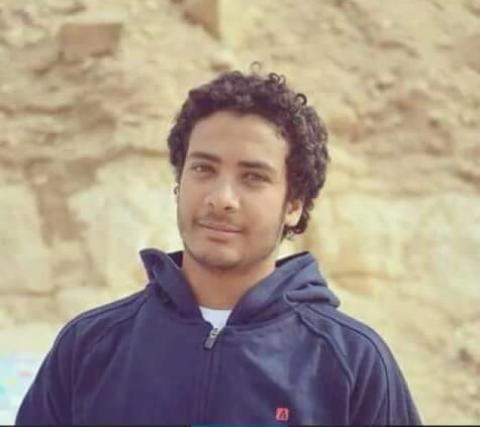
In late August 2016, the United Nations Working Group on Arbitrary Detention (WGAD), a group of independent experts, adopted Opinion n°42/2016; in which they qualify the detention of Ahmed Yousry Zaky, an Egyptian student who was arrested on 5 May 2015, as "arbitrary". After having reviewed the communication sent by Alkarama on 11 May 2016, and faced with the lack of answer from the Egyptian Government, the UN experts ruled that the Egyptian authorities was violating the student's fundamental rights and consequently called upon them to immediately release him. Importantly, the Opinion further manifests the Working Group's concern over a pattern of arbitrary detention in the country.
Background of the case and Alkarama's urgent appeal
Ahmed Yousry Zaky, a 21-year-old Egyptian student, was arrested on 5 May 2015 at his home in Madinat Essalam, Cairo, by members of the Egyptian Homeland Security. The latter arrested him in the middle of the night, breaking into the victim's house without any search or arrest warrant, threatening his relatives and bringing him away to an unknown location. While secretly held at Lazoghly Homeland security premises in Cairo for a month, Yousry Zaky was repeatedly tortured to extract confessions. He was regularly beaten up, deprived of food, water and sleep, and electrocuted on his entire body, including his genitals. With no contact with his family and constantly denied access to a lawyer, the extracted confessions were used to indict him in a military case that involved the alleged killing of a military Official.
Despite being a civilian, Yousry Zaky was presented before a military prosecutor handcuffed and blindfolded, forced to sign a document he could not read and charged under the 2015 Anti-Terrorism Law. He was later brought to Al Aqrab prison in Cairo, where he remains detained to date. It is only a month after being charged that he was finally allowed to see his lawyer. In January 2016, he was brought before a military judge but his trial is continuously postponed, yet still risking to be sentenced to death for the crime he was accused of.
Contacted by Yousry Zaky's family, on 11 May 2016, Alkarama sent an urgent appeal to the WGAD so as to inform the UN experts of the arbitrary nature of his arrest and detention. Alkarama expressed serious concern on the multiple violations suffered with regards to his fundamental fair trial and due process guarantees.
The WGAD's Opinion
In its Opinion, the UN experts considered that Yousry Zaky's deprivation of liberty "is arbitrary, being in violation of the UDHR and the ICCPR." In other words, the experts not only acknowledged that Yousry Zaky's trial was unfair but also that the legal basis invoked to justify his detention was flawed – due to the confessions extracted under torture – and that, as a civilian, he should not have been brought before a military court. Consequently, the independent UN experts requested his immediate release as well as a compensation for his suffering.
Also, the Working Group rightfully emphasized the continuous and repeated arbitrary detentions of individuals in Egypt, this case being not isolated, but conversely reflecting a wider phenomenon that constitutes "a pattern of violations occurring in Egypt." This was illustrated by the arbitrary arrest and detention of thousands of other individuals in the past years. For instance, the UN experts cited various cases, amongst those are the ones of nine journalists and three prominent activists.
Moreover, in its Opinion, the WGAD denounced the use of torture to extract self-incriminatory confessions, as well as the fact that Yousry Zaky, a civilian, was subject to military justice, despite the latter not being competent to try civilians as it lacks independence and impartiality. The experts therefore urged the Government to "immediately release him and accord him an enforceable right to compensation", adding that in light of the pattern of violations, "there is a need to include a guarantee of non-repetition in the scope of the reparation."
The WGAD gave the Egyptian government six months to provide with information on the victim's status and case, such as whether he was released, if compensation has been granted, whether an investigation has been launched to shed light on the violations perpetrated against him, and whether any measure at large has been adopted by the Government to set governmental practices in line with Egypt's international obligations.
Yousry Zaky is still currently facing trial before a military court, his hearing has been postponed at several instances, and risks being death sentenced based on his confessions extracted under torture. The next hearing session is scheduled for 13 November 2016. Alkarama reiterates its calls to the Egyptian authorities to uphold their international obligations and to implement the WGAD Opinion, thereby immediately releasing Yousry Zaky, and to collaborate with the UN Special Procedures while implementing the Opinions previously issued by the WGAD.
For more information or an interview, please contact media@alkarama.org (Tel: +41 22 734 1008).
